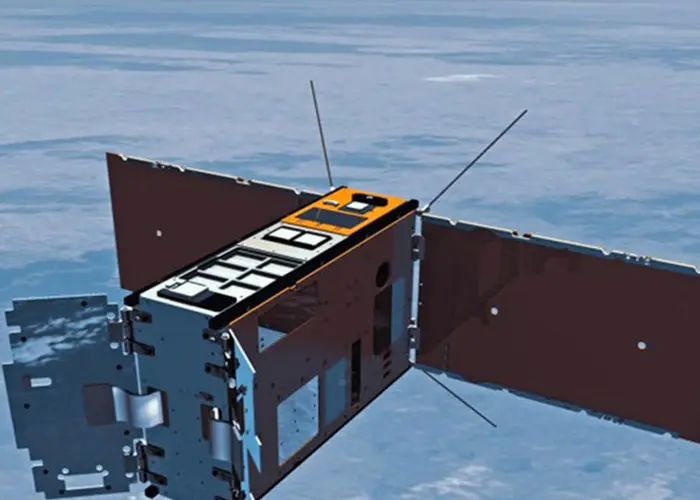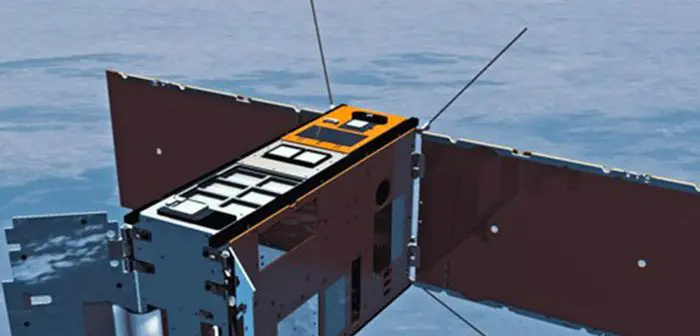
Australian-based space technology company Neumann Space and the University of Melbourne have successfully completed the first in a series of on-orbit tests of the Neumann Drive, a novel electric propulsion system based on solid metal propellants and one of a number of Australian-made space technologies integrated onto the Space Industry Responsive Intelligent Thermal (SpIRIT) nanosatellite launched in December last year.
Earlier this month, SpIRIT was able to successfully demonstrate charging of the Neumann Drive’s power capacitors by the nanosatellite’s solar panels and batteries and conduct several test firings, showcasing its ability to use Molybdenum as a solid metallic propellant.
The Neumann Drive combines the use of a solid metal propellant with a simple design that enables on-demand space mobility. It is also easily integrated into satellites, improves safety, and can be transported and stored with a full load of fuel.
The SpIRIT nanosatellite is an Australia-Italy mission supported locally by the Australian Space Agency’s International Space Investment – Expand Capability scheme and developed by a Melbourne University-led consortium that includes Neumann Space as a founding member. SpIRIT aims to grow Australia’s space industry capabilities and break new ground in high-performance autonomous operations, communications, propulsion and thermal management. SpIRIT is the first Australian-made spacecraft to host a foreign space agency’s scientific instrument as its main payload, showcasing the competitiveness of Australia’s space industry.
The SpIRIT nanosatellite has been operating in orbit approximately 500 kilometres above Earth since its launch on December 1, 2023. Since then, the consortium has worked to perform numerous diagnostic tests to validate the system’s electronics and, in doing so, confirm the resilience of the Neumann Drive to the challenging launch and orbital environments. A comprehensive Neumann Drive testing campaign will continue for the remaining of the two-year SpIRIT mission, with the goal of establishing the long-term viability of the system in orbit.
“The SpIRIT mission office is thrilled about the successful test fire of the Neumann Drive, one of the major mission objectives,” said SpIRIT Principal Investigator Professor Michele Trenti. “All SpIRIT payloads have now been operated in orbit. It’s a fantastic achievement given how hard space is and their experimental nature. We are very proud of the team and collaboration.”
“There is nothing like proving what you can do in space,” said Neumann Space CEO Herve Astier. “Demonstrating our technology in the space environment is not only rewarding but important to delivering assurance and confidence to the global small satellite industry. We are pleased to be a part of SpIRIT, and to collaborate with all of our partners to continue to prove the capability of the Neumann Drive as part of our work towards delivering superior mobility in space.”
“SpIRIT is a showcase of Australian space innovation as illustrated by the successful on-orbit test of the Neumann Drive,” said Australian Space Agency Head Enrico Palermo. “The Agency congratulates Neumann Space and the SpIRIT team on this milestone, and we’re proud that our investment in this science mission continues to boost Australia’s space heritage.”





